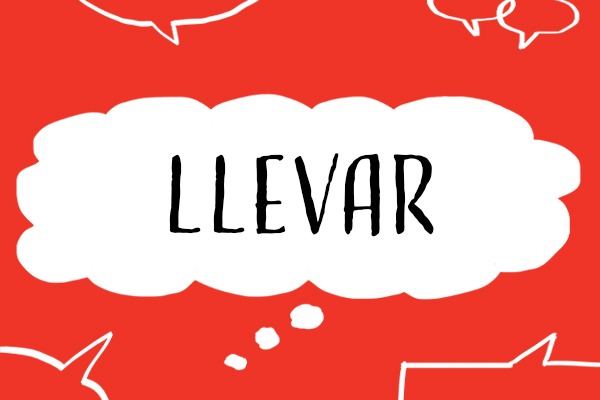This week’s Spanish word of the week is llevar.
Llevar is a verb that means to take; to wear; to be and you can find out how to pronounce it here:
function playAudio(url) { new Audio(url).play(); }Llevar has the basic meaning to take:
¿Llevas los vasos a la cocina? Can you take the glasses to the kitchen?
No te preocupes, yo llevo a Lucas al colegio Don’t worry, I’ll take Lucas to school.
It also means to take as applied to time:
No llevará mucho tiempo, te lo prometo. It won’t take long, I promise.
Terminarlo me llevó un día entero. It took me a whole day to finish it.
Another major meaning of this very common verb is to wear:
Emma llevaba un abrigo muy bonito Emma was wearing a very nice coat.
No llevaba ningún perfume. She wasn’t wearing any perfume.
In the meaning of to wear, llevar is often used with puesto, the past participle of poner, after it:
Llevaba puesto un sombrero muy raro. She was wearing a very strange hat.
Llevar is also very commonly used to refer to how long you have been somewhere:
Llevo solo unos días aquí, y aún no me he acostumbrado. I’ve only been here a few days and I haven’t got used to it yet.
¿Cuánto tiempo llevas en Puebla? How long have you been in Puebla?
Used with a form ending in –ndo after it (the gerund), it refers to how long you’ve been doing something:
Llevo tres horas esperándote. I’ve been waiting for you for (the last) three hours.
Llevaba ya varios meses trabajando en la empresa. He had already been working with the company for quite a few months.
This construction is an alternative to:
Hace varios meses que trabajo en la empresa. and Trabajo en la empresa desde hace varios meses.
Come back next week for a new word, and expand your Spanish vocabulary!



